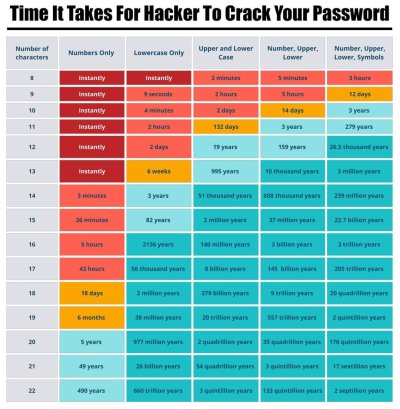I've done a lot of thinking about this. We have so many passwords with so many convoluted rules that it becomes problematic.
We opted for a simple approach that renders a secure password with one hole/leak in the method which I'll discuss in the end of this.
Some passwords can be short (8-12 chars) and some need to be long.
We have two templates. What is a template in this context? It is basically a pattern of chars that only my wife and I know and we know it instinctively and without having the think. We have 2 templates, a long and a short but they follow the same substitutions and the same remembrance criteria.
First we substitute chars (s is $, i is 1, L is 7, 5 is S, a is @, c for k, k for c, etc.). We also substitute our first initial of our first name with # as our names both start with the same letter, in this example m but that's not our first initial, BTW.
The variable is extracted from the domain so fidelity.com would take 2 chars, make them upper case and insert them into the template at the same place.
Example with fidelity.com we might take the 3rd and 4th chars DE and insert them into the center of our template.
Our template is something both of us would never forget. Making up an example let's say our honeymoon was in San Marino (it was not). Our short template Fidelity password would be 5@n__#@r1n0 (first names start with m) with DE inserted in the middle or 5@nDE#@r1n0. This may be a weak example but hopefully the method is clear. We never forget where our honeymoon is and through repetitive use we get used to the template and insertion of 2 chars. You might ask what about ba.com which only has 2 chars? We just back up to ba and there are no single letter domain names that we login to so we don't have a key substitution problem.
Vanguard key is NG so pw would be 5@nNG#@r1n0, Schwab would be HW so pw is 5@nHW#@r1n0. See the problem? If these were stacked in a list it would be easy to guess our capitalone password. That said, we never write these down digitally where they can be stolen and listed. We have the templates and hints written on a document but even that document is a little cryptic. It is written down and stored securely in plain sight in case dementia or other mental issue happens as we age and we just forget or can't remember details.
We have another longer key (same unforgettable thing) that is only used when 12 or more characters are required.
I "invented" this method about 20 years ago and it has served us well during that time. I don't trust online sources because those get hacked (most of them have been hacked), they go out of business, they are in business to make profits and if they stop making profits they often just shutdown. I also don't trust electronic storage because it breaks or if in the cloud we have no control over it and it could go away at anytime without our control. Our brains are still the best method for long term storage of passwords (my strong opinion only).
One time my wife forgot the template due to disuse and I just told her, "remember where we honeymooned?" and she replied, "Oh yeah, I remember the template now" and boom, she was logged in and everything was restored in her brain. I told her to stop caching her passwords and to input them and showed her how to remove them from cache, too.
This method is not for everyone and anyone can make a variant of this approach, even a much simpler variant and it would be very secure as long as you stop writing passwords down or write them digitally to a password manager.

